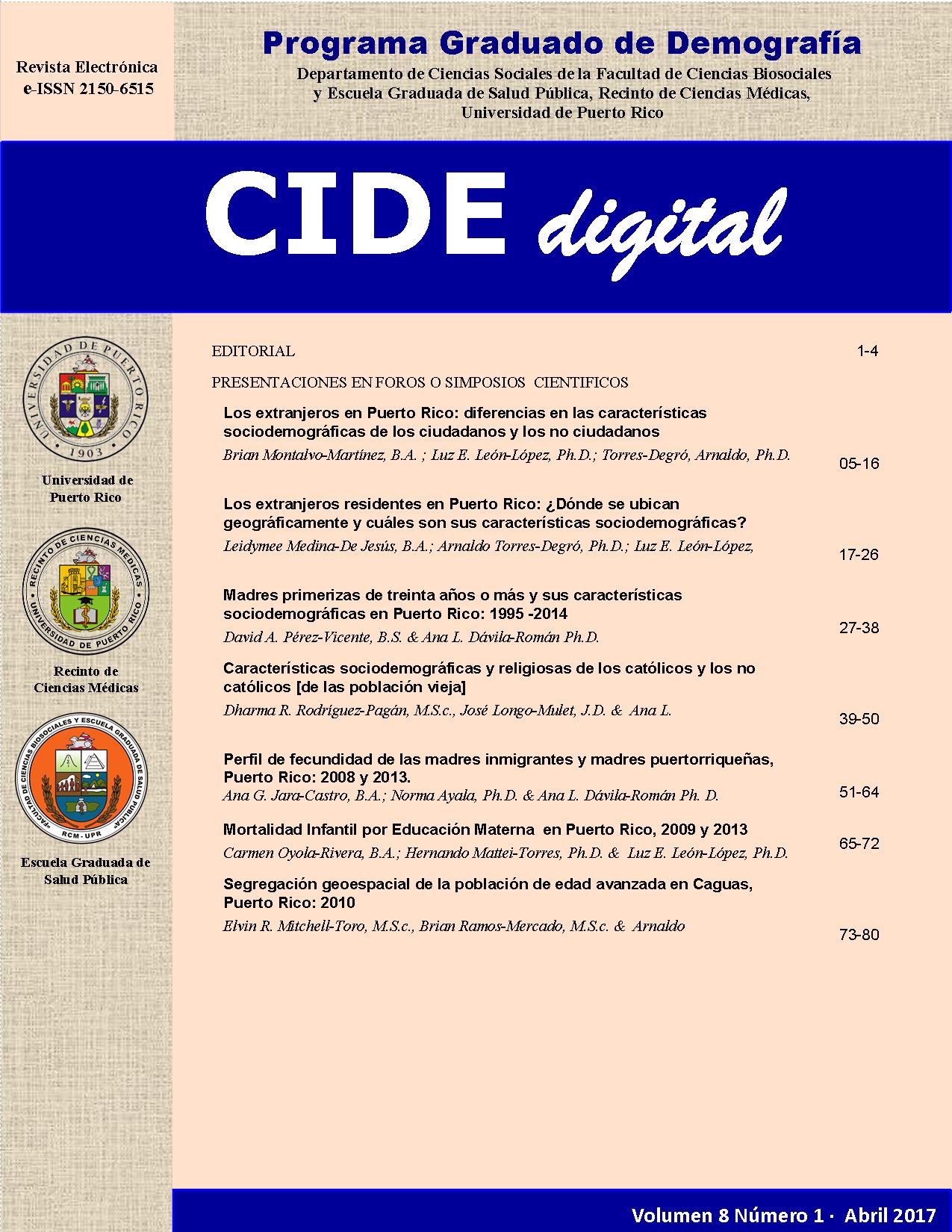Abstract
Background/Objective. Citizenship establishes a form of membership between an individual and the Nation State. It also extends certain rights to which non-citizens have no claim. In the case of Puerto Rico and the U.S., non-citizens cannot vote, are not eligible to receive state and federal aid and cannot work in the public sector. The main objective of this study is to describe the sociodemographic characteristics of the foreign born non-citizen population (FBNCP) residing in Puerto Rico. Method. This is a cross sectional study that utilizes secondary data obtained from United States Census Bureau PUMS (Public Use Microdata Sample) for Puerto Rico 2011-2015. Results. There are close to 100,000 foreign born people, born outside of Puerto Rico and the United States, currently residing in Puerto Rico. Of which 57% are non-citizens and 93% originate from Latin America. The municipalities with the highest percentage of FBNCP were: Maricao (100%), Camuy (87%), Maunabo (87%) and Florida (86%). About 58% are men. Compared to foreign born citizens, non-citizens tend to be younger (median age 44), and a high percentage of them are of working and reproductive age. In terms of marital status, divorced/separated and never married prevail among other categories. They have a higher unemployment rate (54%), lower income (median $11,800) and a higher poverty rate (49.4%) Conclusion. Non-citizen immigrants represent a population sector that the State should address. Not only do they not possess equal rights, but also their characteristics place them in a situation of demographic vulnerability.Downloads
Download data is not yet available.

